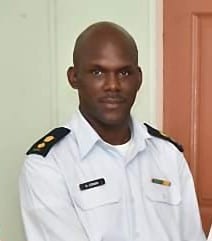Speaking at the opening of a major capacity building workshop on Oil Spill Response in the South American country of Guyana, Country Manager of ExxonMobil, Rod Henson, stressed the importance of being prepared, even while highlighting that the likelihood of a large oil spill was relatively low.
The Incident Command Systems (ICS) and Oil Spill Response Workshop, organised by the Civil Defence Commission (CDC) in partnership with the Ministry of Natural Resources and ExxonMobil Guyana, opened at the CDC headquarters in the capital City, Georgetown, on Monday.
Addressing participants and first responders at the opening of the training programme, Mr. Henson said, “We believe at ExxonMobil that you could never have enough training. In the time of an emergency, that’s not the time to learn, that’s the time to act, so you have to be prepared to act.”
Emergency preparedness and response, the Country Manager said, is a mechanism companies and stakeholders hope they never have reason to use, but nevertheless, must be prepared for. ExxonMobil and its contractors, he pointed out, “…go to great lengths to ensure that there is no oil spill, to ensure that never happens. Significant spills are extremely rare and statistically it’s very unlikely that there will be a large spill in Guyana.”
The Environmental Impact Assessment study that was conducted for the Liza Phase 1 development project states that in the unlikely event of an oil spill, there is only a 5 to 10 percent chance of shoreline oiling in Guyana. Also, the modeling used did not account for any oil spill response (e.g., aerial, vessel or sub-sea dispersant application, offshore containment and recovery, source control operations), so any preventative measures taken to keep oil from reaching the coast during a response would further reduce the potential of shoreline oiling below the estimated 5 to 10 percent.
“However, to be prudent we have to be prepared,” Mr. Henson told those gathered for the opening of the training course.

In his remarks, CDC Director General (ag), Lt. Col, Kester Craig said the aim of these courses is to enhance the national oil spill response capacity to ensure the well-organized development and deployment of systematic tools for command, control, and coordination of a multi-agency response to oil spill incidents.
“Moreover, the courses will provide the means to coordinate the efforts of individual agencies in their common goal toward the stabilization of an incident and the protection of lives, property, and the environment,” he said.
The Incident Command System Course which will be conducted from April 23 to 25 provides the operational environment for coordination of effort, so that all responders are using the same standardised terminology, interoperable technologies, organisational structure, and management techniques.
On the other hand, the Acting CDC Head said the Oil Spill Response Course that will be conducted over the period April 26 to 28 at Splashmin’s Resort, will expose participants to the theory of oil spill response; but more importantly, to practical components of responding to spills and the deployment of resources.




